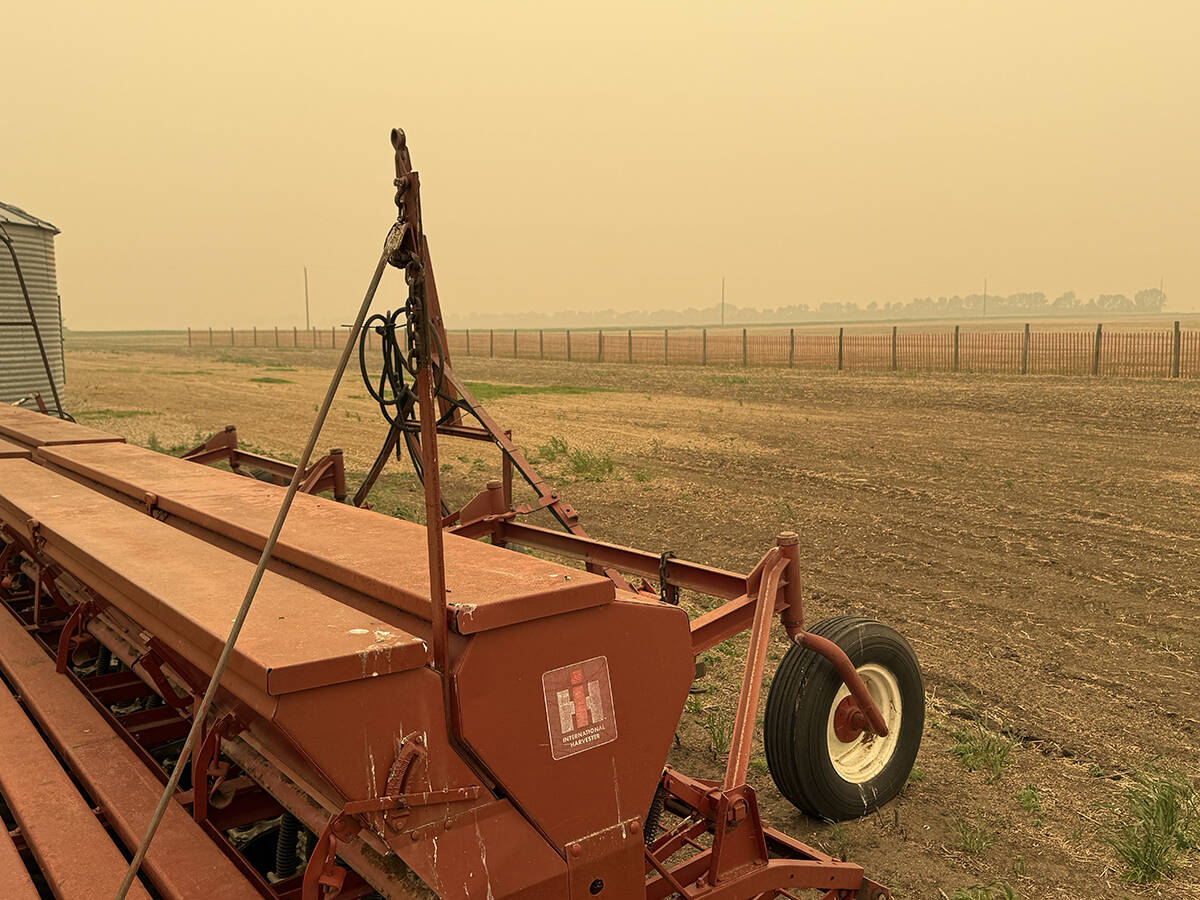Spreading manure in Manitoba may soon become more complicated than just the time, space and method.
Farmers who own large livestock operations will have to file an annual manure management plan with the government, according to proposed provincial regulations drafted for public comment.
And large livestock farms will have to have a place to store manure through the winter because they won’t be allowed to spread manure from November to May.
The provincial government has been reviewing its livestock waste regulations for more than a year and recently released what it believes will protect the environment, improve enforcement and calm public concern about manure from intensive livestock operations.
Read Also

Wildfires have unexpected upside this year
One farmer feels smoke from nearby wildfires shrouded the July skies and protected his crop from the sun’s burning rays, resulting in more seeds per pod and more pods per plant.
Some concerns
Keystone Agricultural Producers, a general farm lobby group, and major livestock commodity groups generally support the reforms, with some reservations.
Bill Swan, a milk producer near Warren, Man., said only farmers with more than 400 animal waste units will have to file plans and avoid spreading in the winter.
It’s believed about 1,700 operations have more than the designated number of animal waste units. An animal waste unit is the number of animals that excrete 73 kilograms of nitrogen in a year.
Hog operations with more than 320 sows, 20,000 weanlings or 2,860 feeder pigs top the 400 animal waste unit mark.
Like Swan, most dairy farmers in the province have less than 200 cows, meaning they won’t be affected.
He is concerned, however, that the limit of 400 animal waste units could shrink after a couple of years. Farmers need some long-term certainty to make business plans, said Swan.
As well, the manure-spreading season isn’t appropriate for all parts of the province and the deadline of the fall of 1999 for making improvements will be tight, especially in southeastern Manitoba where contractors remain booked up with flood repairs in the Red River Valley.
The proposed regulations would also prevent new manure storage from being built in flood plains, and spell out the nitrogen rates for applying manure to different crops and soils.
The government is holding open houses on the proposed changes to the regulations from Jan. 19-29.














